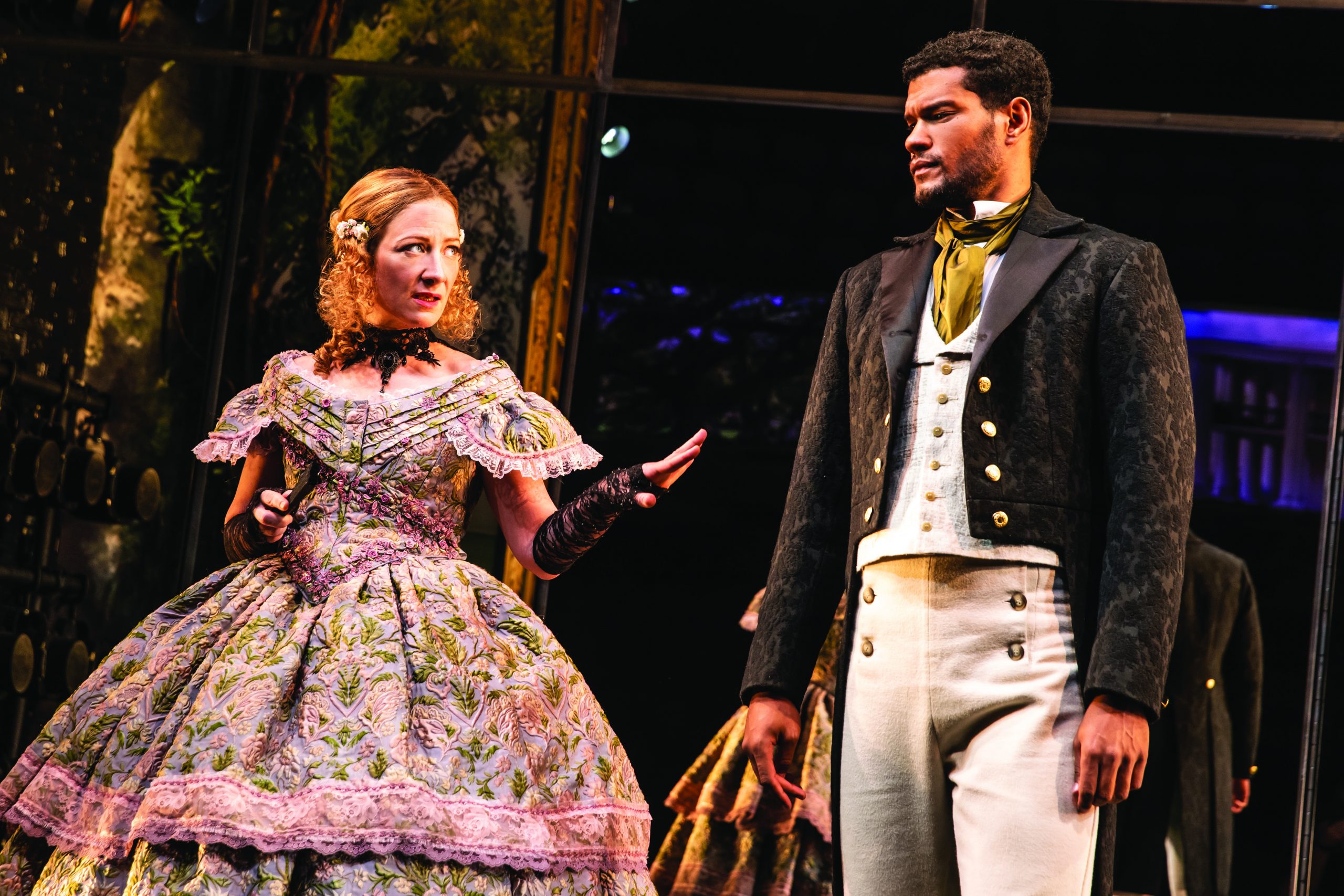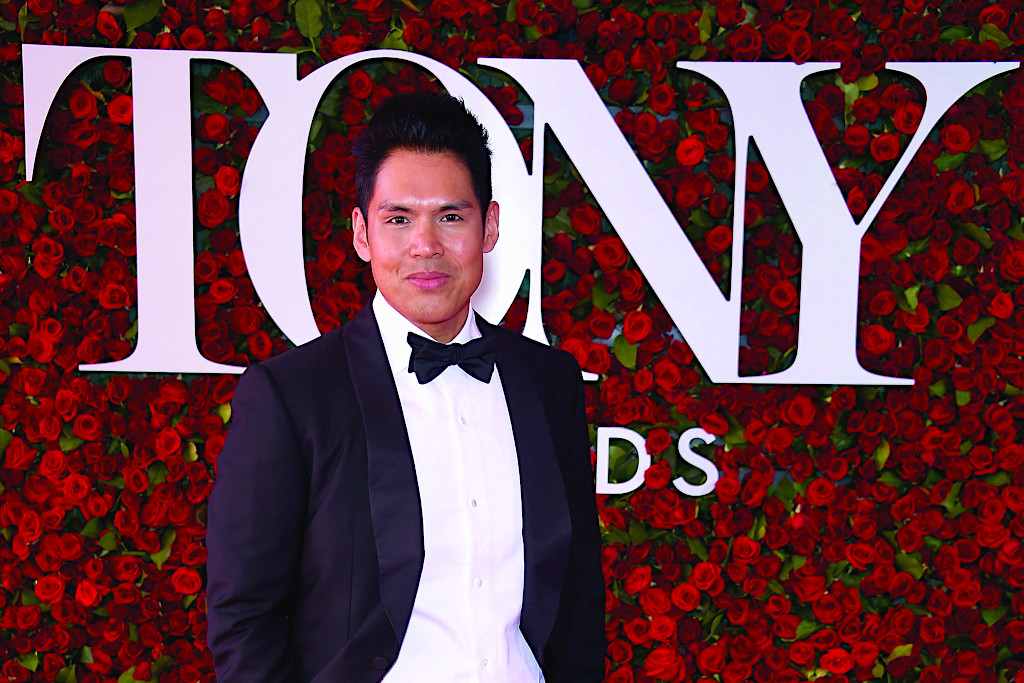And I assume Angels in America was a big marker, too. You’ve collaborated with Billy Porter quite a bit since then, correct?
That’s a big one, oof, baby! That’s where I met my husband. Yes, I’ve collaborated with Billy for a long time. It started with Angels and then I designed many of the shows he’s directed. He gives you so much wisdom.
I’ve got to ask for a Billy anecdote. Any particularly sassy or memorable moments you can share?
We did The Colored Museum at the Huntington in Boston in 2015. Billy directed this revival with playwright George C. Wolfe’s blessing and I remember all of us basically reminding Billy the whole time that it was a play, not a musical! Every single scene had choreography, music, singing. That was a fun rehearsal period, because all these actors were like, ‘I didn’t know I signed up for a musical!’ I’m working with Billy on his upcoming adaptation of 1997’s The Life right now, and Billy h as always been unequivocal about his politics. That’s why I work with Billy. I learn so much about being brave. Billy’s life, which is very public, has not been easy, and I look up to him as a role model and every time he says something I really lean in and listen. I interviewed him to prepare for our work on The Life and we talked for three hours. He’s so wise.

Slave Play
Photo: Matthew Murphy
Are you ecstatic that he’s finally become a major name with Pose and having his moment?
Long delayed and most deserved. Ecstatic is not even the word. It feels like something got righted in the world.
What was your biggest challenge when working as costume designer on Respect?
It’s massive. We prepared 80 costumes for her, and I think the challenge was getting into Aretha’s psyche. Although there are many photos of her over the years, what we didn’t have photos of was the stuff folks couldn’t photograph. What did she look like when she was down and out? When she had arguments with or was beaten by her husband? When she went through her demons? To me, that was the challenge, honoring her legacy in a way that was honest and not glossing over the rough patches. Also, what sets Aretha apart from all her contemporaries is you can’t really pinpoint any sort of style she was devoted to. She was an independent dresser, and dressed the way she felt and how her life moved. When you look at the trajectory of her life, it’s her developing new thoughts and identities. There’s this jagged part when she became really political in the 70s, and suddenly she had an afro. Also she was very imperfect. She wasn’t like the mannequin Diana Ross was. She didn’t let the clothes wear her. She wore the clothes, and you’ll see a lot of photographic evidence of her being comfortable in them, but imperfect.


